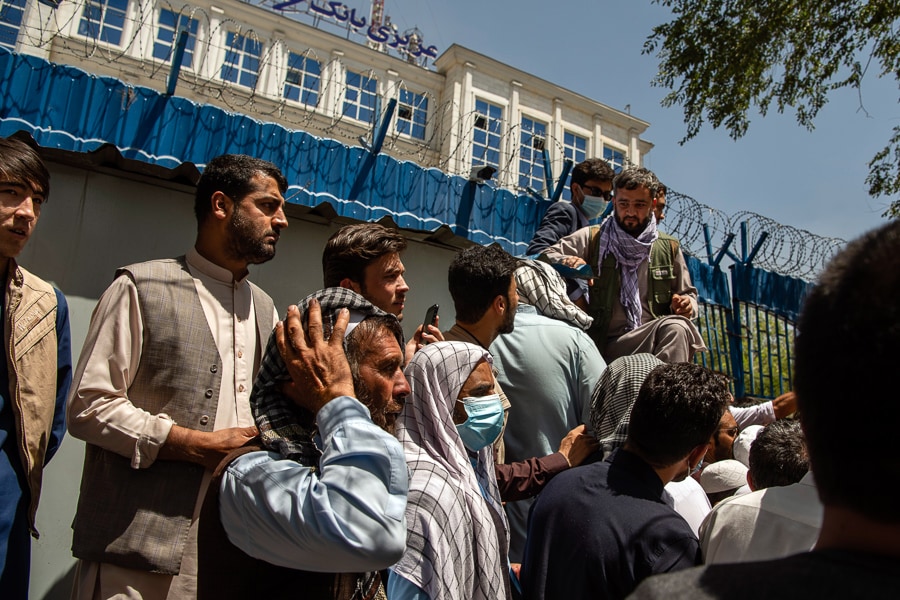
US and IMF apply a financial squeeze on the Taliban
About $7 billion of the Afghan central bank's $9 billion in foreign reserves are held by the Federal Reserve Bank of New York, and the Biden administration has already moved to block access to that money
 People gather in front of a bank in Kabul to withdraw money as the Taliban enters the capital city on Sunday, Aug. 15, 2021. The former acting governor of the Afghan central bank, who has fled the country, said on Wednesda, Aug. 18, 2021, that nearly all of the bank’s $9 billion in reserves were beyond the reach of the Taliban. Image: Kiana Hayeri/The New York Times
People gather in front of a bank in Kabul to withdraw money as the Taliban enters the capital city on Sunday, Aug. 15, 2021. The former acting governor of the Afghan central bank, who has fled the country, said on Wednesda, Aug. 18, 2021, that nearly all of the bank’s $9 billion in reserves were beyond the reach of the Taliban. Image: Kiana Hayeri/The New York Times
Despite the chaotic end to its presence in Afghanistan, the United States still has control over billions of dollars belonging to the Afghan central bank, money that Washington is making sure remains out of the reach of the Taliban.
About $7 billion of the central bank’s $9 billion in foreign reserves are held by the Federal Reserve Bank of New York, the former acting governor of the Afghan central bank said Wednesday, and the Biden administration has already moved to block access to that money.
The Taliban’s access to the other money could also be restricted by the long reach of U.S. sanctions and influence. The central bank has $1.3 billion in international accounts, some of it euros and British pounds in European banks, the former official, Ajmal Ahmady, said Wednesday. Remaining reserves are held by the Swiss-based Bank for International Settlements, he added.
Ahmady said earlier Wednesday that the Taliban had already been asking central bank officials where the money was.
“We can say the accessible funds to the Taliban are perhaps 0.1% to 0.2% of Afghanistan’s total international reserves,” he wrote on Twitter. “Not much.”
©2019 New York Times News Service







